Related Research Articles

Abbot is an ecclesiastical title given to the male head of a monastery in various Western religious traditions, including Christianity. The office may also be given as an honorary title to a clergyman who is not the head of a monastery. The female equivalent is abbess.

Sigmund Freud was an Austrian neurologist and the founder of psychoanalysis, a clinical method for evaluating and treating pathologies seen as originating from conflicts in the psyche, through dialogue between patient and psychoanalyst, and the distinctive theory of mind and human agency derived from it.

A taboo, also spelled tabu, is a social group's ban, prohibition, or avoidance of something based on the group's sense that it is excessively repulsive, offensive, sacred, or allowed only for certain people. Such prohibitions are present in virtually all societies. Taboos may be prohibited explicitly, for example within a legal system or religion, or implicitly, for example by social norms or conventions followed by a particular culture or organization.
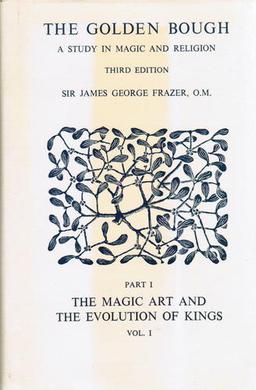
The Golden Bough: A Study in Comparative Religion is a wide-ranging, comparative study of mythology and religion, written by the Scottish anthropologist Sir James George Frazer. The Golden Bough was first published in two volumes in 1890; in three volumes in 1900; and in twelve volumes in the third edition, published 1906–1915. It has also been published in several different one-volume abridgments. The work was aimed at a wide literate audience raised on tales as told in such publications as Thomas Bulfinch's The Age of Fable, or Stories of Gods and Heroes (1855). The influence of The Golden Bough on contemporary European literature and thought was substantial.
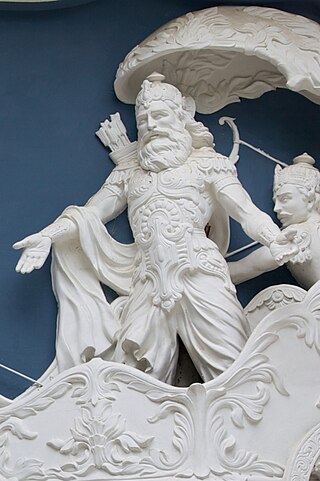
Kshatriya is one of the four varna of Hindu society, associated with warrior aristocracy. The Sanskrit term kṣatriyaḥ is used in the context of later Vedic society wherein members were organised into four classes: brahmin, kshatriya, vaishya and shudra.
In many historical societies, the position of kingship carries a sacral meaning; that is, it is identical with that of a high priest and judge. The concept of theocracy is related, although a sacred king does not need to necessarily rule through his religious authority; rather, the temporal position itself has a religious significance behind it.
Tanistry is a Gaelic system for passing on titles and lands. In this system the Tanist is the office of heir-apparent, or second-in-command, among the (royal) Gaelic patrilineal dynasties of Ireland, Scotland and Mann, to succeed to the chieftainship or to the kingship.
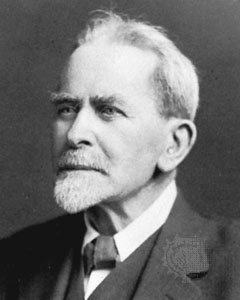
Sir James George Frazer was a Scottish social anthropologist and folklorist influential in the early stages of the modern studies of mythology and comparative religion.

Raja is a royal title used for South Asian monarchs. The title is equivalent to king or princely ruler in South Asia and Southeast Asia.

Kapu is the ancient Hawaiian code of conduct of laws and regulations. The kapu system was universal in lifestyle, gender roles, politics and religion. An offense that was kapu was often a capital offense, but also often denoted a threat to spiritual power, or theft of mana. Kapus were strictly enforced. Breaking one, even unintentionally, often meant immediate death, Koʻo kapu. The concept is related to taboo and the tapu or tabu found in other Polynesian cultures. The Hawaiian word kapu is usually translated to English as "forbidden", though it also carries the meanings of "keep out", "no trespassing", "sacred", "consecrated", or "holy".
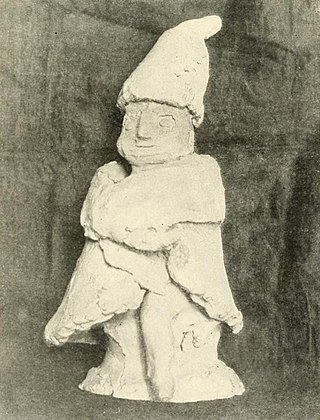
A household deity is a deity or spirit that protects the home, looking after the entire household or certain key members. It has been a common belief in paganism as well as in folklore across many parts of the world.
In psychology, displacement is an unconscious defence mechanism whereby the mind substitutes either a new aim or a new object for goals felt in their original form to be dangerous or unacceptable.

Lugal is the Sumerian term for "king, ruler". Literally, the term means "big man." In Sumerian, lú "𒇽" is "man" and gal "𒃲" is "great," or "big."

Totem and Taboo: Resemblances Between the Mental Lives of Savages and Neurotics, or Totem and Taboo: Some Points of Agreement between the Mental Lives of Savages and Neurotics, is a 1913 book by Sigmund Freud, the founder of psychoanalysis, in which the author applies his work to the fields of archaeology, anthropology, and the study of religion. It is a collection of four essays inspired by the work of Wilhelm Wundt and Carl Jung and first published in the journal Imago (1912–13): "The Horror of Incest", "Taboo and Emotional Ambivalence", "Animism, Magic and the Omnipotence of Thoughts", and "The Return of Totemism in Childhood".
The taboo on the dead includes the taboo against touching of the dead, those surrounding them and anything associated with the dead.

The uncanny is the psychological experience of an event or individual as not simply mysterious, but frightening in a way that feels oddly familiar. This phenomenon is used to describe incidents where a familiar thing or event is encountered in an unsettling, eerie, or taboo context.
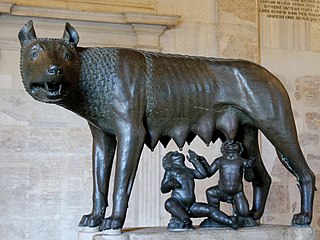
The king of Rome was the ruler of the Roman Kingdom. According to legend, the first king of Rome was Romulus, who founded the city in 753 BC upon the Palatine Hill. Seven legendary kings are said to have ruled Rome until 509 BC, when the last king was overthrown. These kings ruled for an average of 35 years.
Taboo is a monograph based on a series of lectures by Franz Steiner, now considered to be a classic in the field of social anthropology. The volume was published posthumously, edited by Steiner's student Laura Bohannan, and the first edition, brought out in 1956, contained a preface by his mentor E. E. Evans-Pritchard. The lectures analyze one of the great problematic terms of modern ethnography, that of taboo, derived from the Polynesian word tapu, adopted by Western scholars to refer to a generic set of ritual inhibitions governing what was thought to be primitive society or the ‘savage mind’.

The Mahafaly are an ethnic group of Madagascar that inhabit the plains of the Betioky-Ampanihy area. Their name means either "those who make holy" or "those who make happy", although the former is considered more likely by linguists. In 2013 there were an estimated 150,000 Mahafaly in Madagascar. The Mahafaly are believed to have arrived in Madagascar from southeastern Africa around the 12th century. They became known for the large tombs they built to honor dead chiefs and kings. Mainly involved in farming and cattle raising, they speak a dialect of the Malagasy language, which is a branch of the Malayo-Polynesian language group.
This is a list of writings published by Sigmund Freud. Books are either linked or in italics.
References
- Frazer, James George (1911). The Golden Bough: A Study in Magic and Religion.
- Freud, Sigmund (1919). Totem and Taboo: Resemblances between the psychic lives of savages and neurotics. New York: Moffat, Yard and Company.